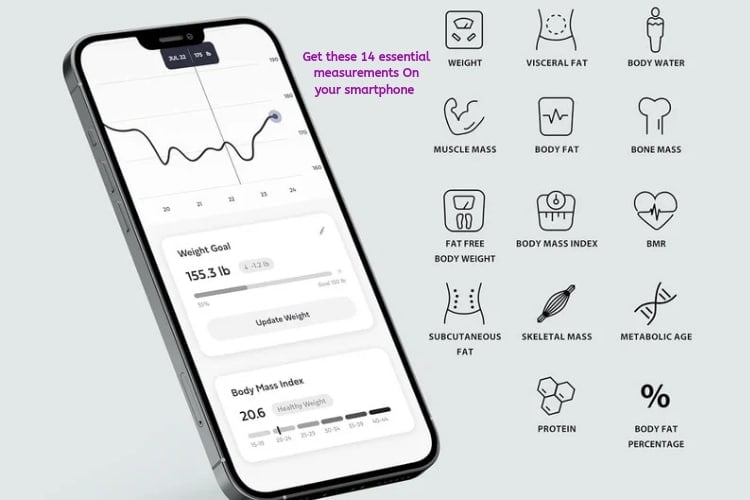Table of Contents
Introduction
Obesity can cause many unwanted problems. The image below shows the effects of this condition-

So far I have covered almost all topics related to obesity and overweight problems like BMI, WHR, BMR etc.
Now,once you have been categorized as either obese or overweight or for that matter of ideal body weight,we can now go about how to treat or maintain it.
What are the investigations I carry out in obesity?
If you are obese or overweight,we have to carry out some investigations like:
- serum cholesterol level,
- kidney function test,
- thyroid function test,
- blood sugar etc.
I do these tests so that we can treat these conditions simultaneously to get the best results.
If there is abnormality in reports of these tests,we will have to repeat it again while on therapy in either 3 or 6 months time so that we can judge if you are responding well to the therapy or not.
How do I go about treating obesity?
These are things which I follow to helpmy patients of obesity:-
A]Check body weight and compare it with ideal body weight for your height and age.We then calculate your BMI,WHR and BMR.
B]Check your total body fat composition and calculate your visceral fat quantity.

C]If the visceral fat to total body fat ratio is high,we carry out the test mentioned above.
D] Learn about your eating[diet] habits so that we can calculate how much calories you are consuming unknowingly which is adding to your weight day-by-day.
E]Learn about what and how much exercise you are doing to know whether you are burning sufficient calories or not.
The next step…
What is the best treatment for obesity?
The best treatment for obesity is a combination of regular physical activity and a balanced diet. Here are some detailed instructions:
Set realistic goals: Start by setting achievable goals for weight loss. Aim to lose 1-2 pounds per week to ensure sustainable weight loss.
Increase physical activity: Engage in at least 150 minutes of moderate-intensity aerobic activity or 75 minutes of vigorous-intensity activity every week. Include both cardiovascular exercises (e.g., brisk walking, cycling) and strength training exercises to build muscle.
Create a calorie deficit: Consume fewer calories than you burn to promote weight loss. Focus on portion control, limit high-calorie foods and beverages, and choose nutrient-dense options.
Eat a balanced diet: Include a variety of fruits, vegetables, whole grains, lean proteins, and healthy fats in your meals. Avoid processed foods, sugary snacks, and excessive saturated fats.
Monitor portion sizes: Be mindful of your portion sizes to control calorie intake. Use smaller plates, read food labels for serving sizes, and avoid eating directly from packages.
Stay hydrated: Drink plenty of water throughout the day. It can help reduce hunger, increase satiety, and support overall health.
Seek professional guidance: Consider consulting a registered dietitian or healthcare provider to create a personalized meal plan and receive ongoing support.
Stay consistent: Embrace a long-term approach to weight management. Make sustainable changes to your lifestyle rather than relying on quick fixes or fad diets.
Get support: Engage in a support system, such as joining a weight loss group or involving family and friends in your journey.
Monitor progress: Keep track of your weight, body measurements, and food intake to assess progress. Adjust your plan if needed.
Remember, it’s essential to consult with a healthcare professional before starting any weight loss program, especially if you have underlying health conditions.
Once the above exercise is carried out,we proceed to calculate how much you have to eat and how much energy you have to spend to get the desired weight loss without feeling weak or drained out.
As we proceed day-by-day,you will start feeling the change and feel more and more energetic than before.
How can we help someone who is obese?
Helping obese people means we treat many related conditions at the same time. Someone may have high blood pressure, or diabetes or hypothyroidism. These disorders are the offshoots of obesity and treating them is equally important.
This is how we can help such people-
- Engaging in regular physical activity and following a balanced, nutritious diet can help individuals who are obese.
- It is advisable to consult with a healthcare professional or a registered dietitian for personalized guidance.
- They can provide tailored advice and create a suitable plan to support weight loss and overall well-being.
- Additionally, incorporating healthy habits such as
- portion control,
- mindful eating, and
- staying adequately hydrated can contribute to a successful weight management journey.
Preventing Obesity
What are 3 keys to preventing obesity?
We can prevent obesity if we follow certain rules. I would suggest these 3 tips-
- Balanced diet
- Regular physical activity
- Portion control
Suggested reading-
Conclusion
Here I conclude my series of articles on obesity. Be sure to share this post on social media icons at the bottom of this article.
Alternately you can click to tweet here-
Understanding OBESITY – PART 3- Treatment Share on XAdios.
